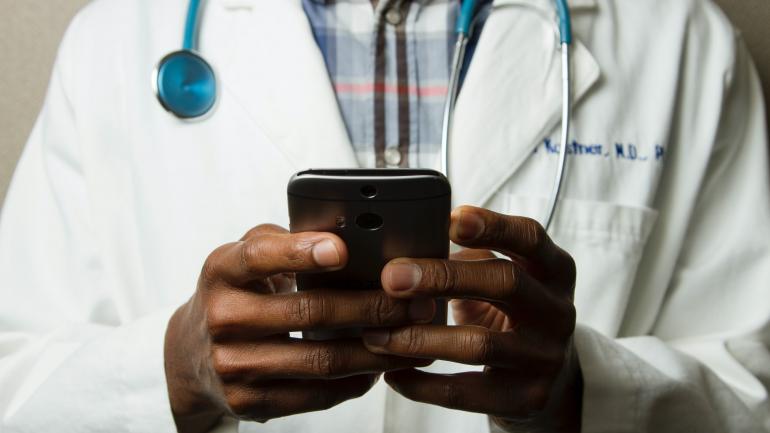Following the launch of the Phase 2a quantitative findings in June 2021, TEC Cymru have published the second phase qualitative evaluation of the NHS Wales Video Consulting (VC) service.
TEC Cymru’s Phase 2a evaluation aimed to explore the use, value, benefits, challenges, and long-term sustainability of VC within NHS services across Wales.
To paint a realistic picture of how VC was being used and received, the team were keen to capture qualitative and quantitative data, enabling them to identify ways to continually improve the service.
A survey link distributed to patients and clinicians completing VC appointments collected a total of 22,978* responses, and free-text comments were used to capture rich, narrative data about individuals’ experiences with VC.
Highlights from these responses have been pulled together in to the latest qualitative report from TEC Cymru.
Five dominant themes became apparent from the responses:
- The Ease of VC refers to its ease of use in a technical manner, for the patients’ personal reasons (e.g., anxiety, access difficulties), and its ability to allow for a collaborative approach amongst clinicians and multi-disciplinary teams.
- The Personal Touches expresses VC’s ability to allow for communication and rapport building between patient and clinician, as well as a more patient-centred approach.
- The Benefits of VC include the convenience of being at home, flexibility, saving time (travel time, wait times, taking time off work/school), enhancing the clinical session, and VC being the “next best thing” to face-to-face appointments. However, certain clinical situations are proven to not be appropriate for VC.
- Technical Quality was highlighted, including poor connectivity, issues with visuals and audio, and incompatibility between the video consulting software and devices. Despite the challenges, innovative troubleshooting techniques were reported by clinicians.
- Clinical Recommendations & Future Use suggests that improvements are needed in accessing resources, such as equipment and workspaces, as well as increased technical support for both patients and clinicians. A blended approach is suggested for the future of NHS services.
The above themes suggest that, overall, the NHS Wales VC Service is highly satisfactory, well-accepted, and clinically suitable for a range of clinicians, teams, services, and patients receiving care.
A Doctor in Swansea Bay University Health Board said:
“Really useful being able to see patient and daughter via system – really added to consultation, infinitely superior to telephone consultation.”
However, it is also evident that further support and resources are required to make VC more successful and widely adopted in the future.
A Speech & Language Therapist in Betsi Cadwaladr University Health Board said additional
“technical support in order to be able to support the patient would be useful.”
Sara Khalil, TEC Cymru Programme Lead said:
“Historically, capturing information about the impact of Digital Transformation has been challenging and limited to small datasets.
This national evaluation has provided a rich picture of how the introduction of Video Consultation has benefited both patients and staff. We appreciate that respondents took the time to feedback testimonies and examples of their lived experiences.
The report has also highlighted where there is room for improvement, allowing us to continuously learn and enhance the service.”
Check out the full Phase 2a qualitative findings.
Interested in learning more about our video consulting journey? Check out these case studies:
* Data collected between 1st September 2020 and 28th February 2021



